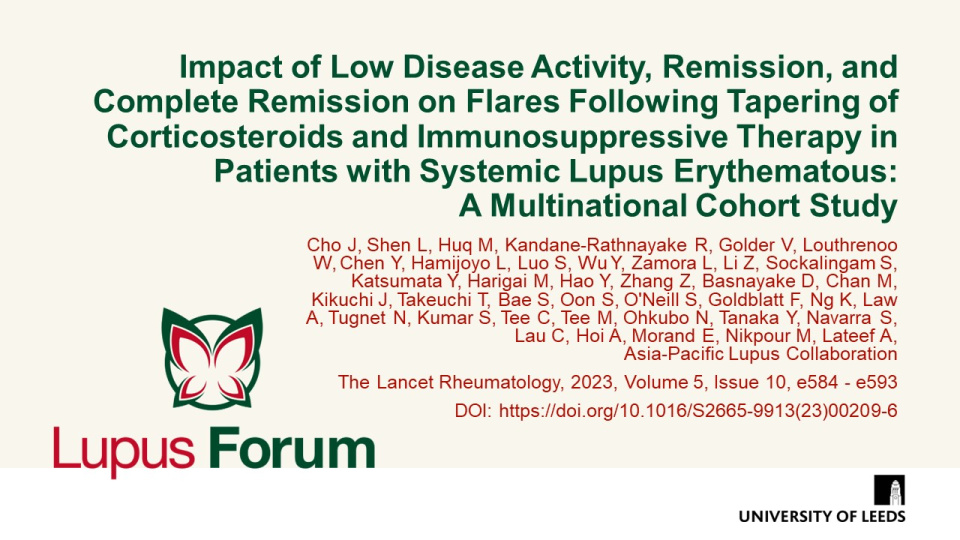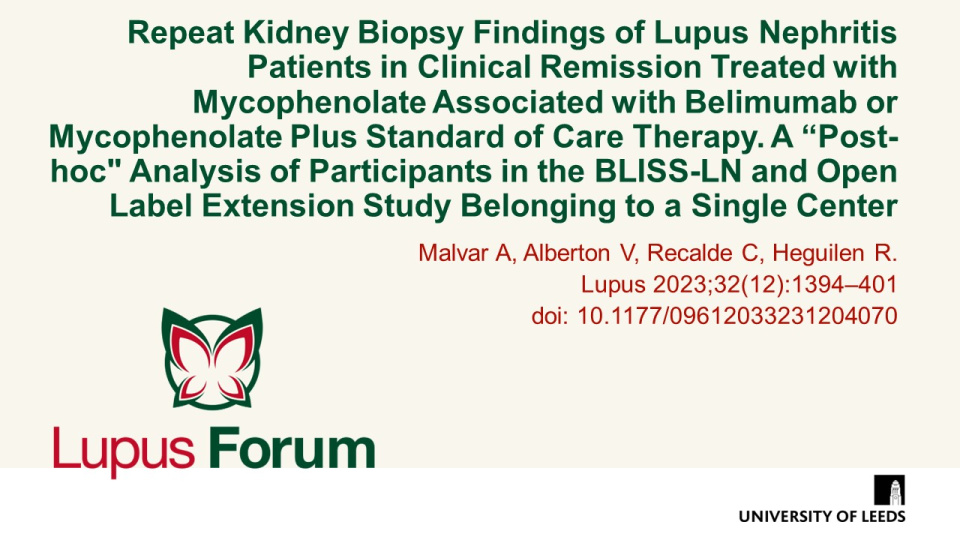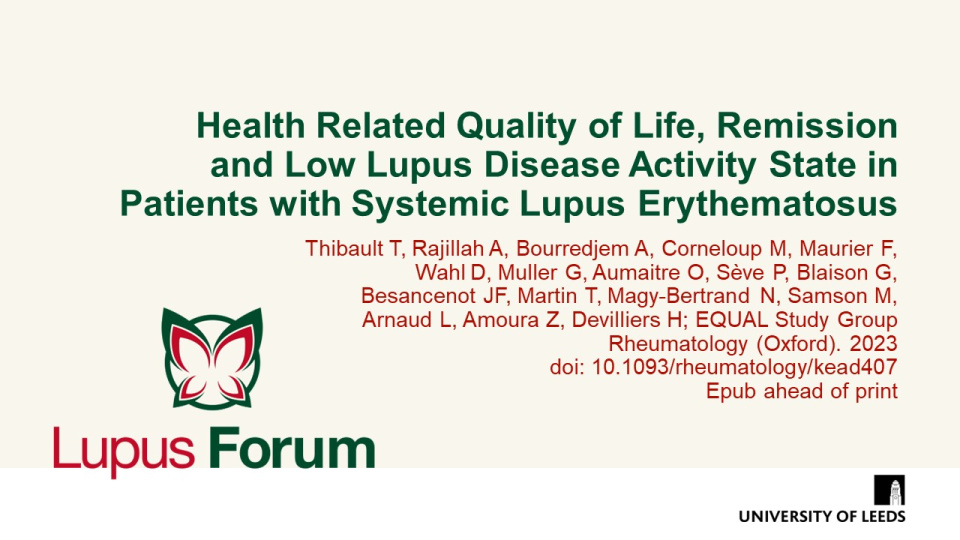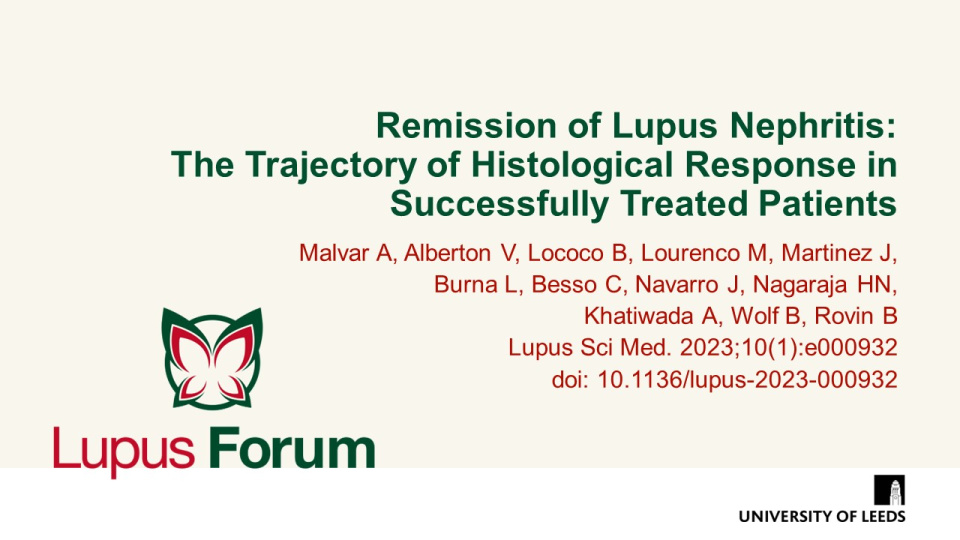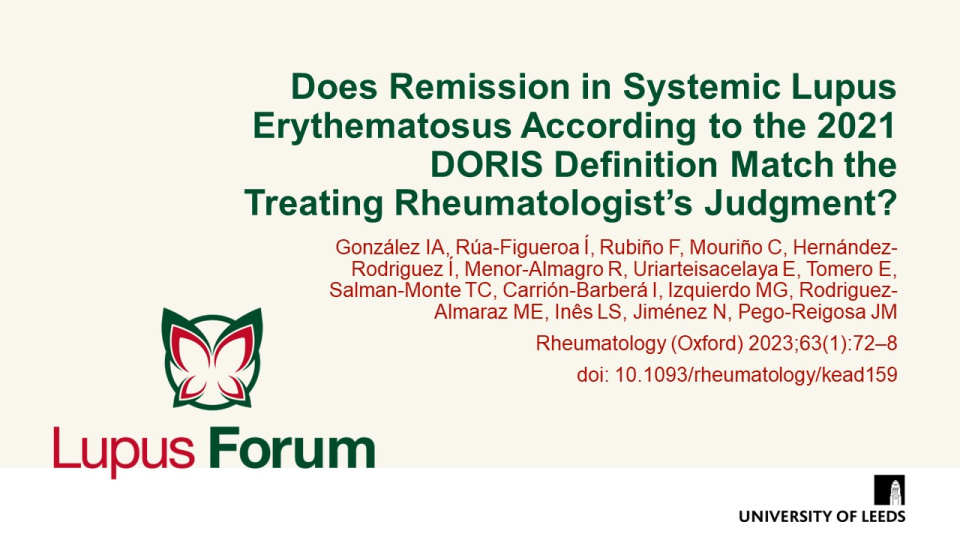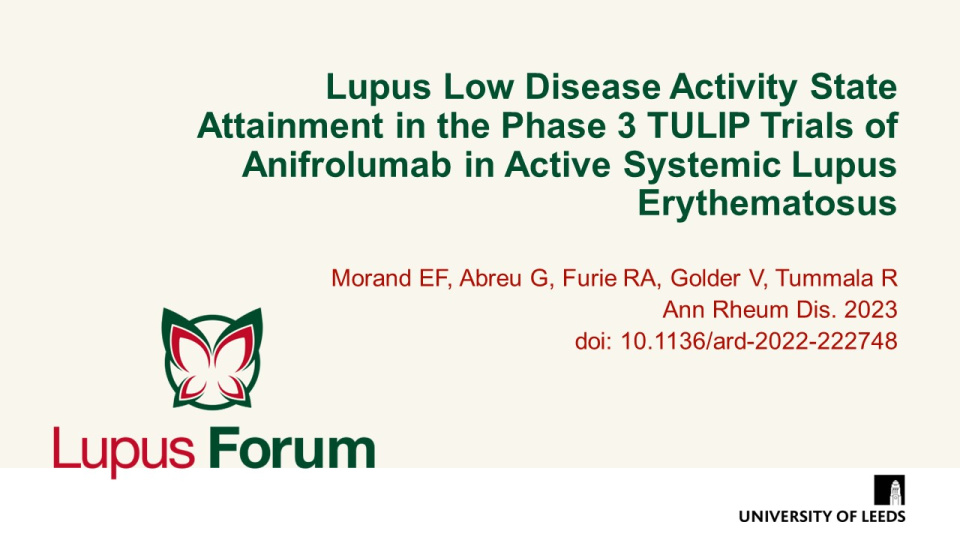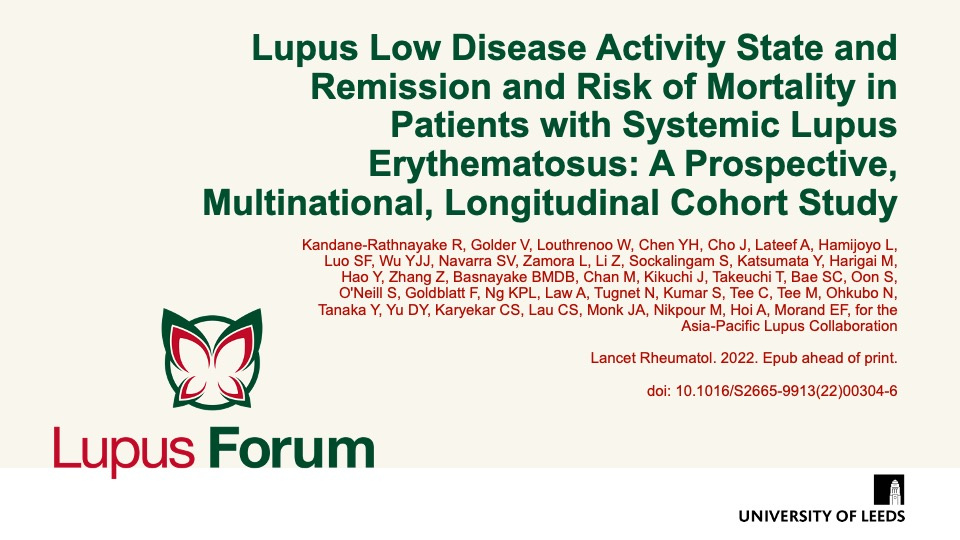Publications
Find coverage of the latest original articles on Lupus, focusing on those with data on therapeutic interventions and those that have clinical impact.
Impact of Low Disease Activity, Remission, and Complete Remission on Flares Following Tapering of Corticosteroids and Immunosuppressive Therapy in Patients with Systemic Lupus Erythematous: A Multinational Cohort Study
The Lancet Rheumatology, 2023, Volume 5, Issue 10, e584 - e593 DOI: https://doi.org/10.1016/S2665-9913(23)00209-6
In this study, tapering of corticosteroids or immunosuppressive therapy in patients in LLDAS, remission, or complete remission was associated with excess flares versus continuing with therapy. Tapering in complete remission was associated with lower odds of flares compared with tapering in LLDAS or remission. In addition, patients with longer sustained duration of LLDAS or remission at the time of tapering had lower odds of flare and longer time to flare versus those with a shorter duration of LLDAS or remission.
Repeat Kidney Biopsy Findings of Lupus Nephritis Patients in Clinical Remission Treated with Mycophenolate Associated with Belimumab or Mycophenolate Plus Standard of Care Therapy. A “Post-hoc" Analysis of Participants in the BLISS-LN and Open Label Extension Study Belonging to a Single Center
doi: 10.1177/09612033231204070 Epub ahead of print
Single-centre study concludes that adding belimumab to the standard of care treatment with mycophenolate (MMF) increases the possibility of achieving a complete clinical response (CCR), complete histological response (CHR), and a lower rate of relapses during treatment and long follow-up.
Health Related Quality of Life, Remission and Low Lupus Disease Activity State in Patients with Systemic Lupus Erythematosus
Rheumatology (Oxford). 2023 doi: 10.1093/rheumatology/kead407 Epub ahead of print
One of the first studies to investigate associations between disease activity and QoL, using validated generic and disease-specific PRO questionnaires, found that DORIS remission and LLDAS were associated with significant and clinically relevant higher QoL in most PRO domains of the LupusPRO (disease specific) and SF-36 (generic) questionnaires, but not with LupusQoL and SLEQOL disease-specific questionnaires.
Remission of Lupus Nephritis: The Trajectory of Histological Response in Successfully Treated Patients
Lupus Sci Med. 2023;10(1):e000932 doi: 10.1136/lupus-2023-000932
LN histological activity takes months to years to resolve, providing a rationale for the need of long-term, well-tolerated maintenance immunosuppression.
Does Remission in Systemic Lupus Erythematosus According to the 2021 DORIS Definition Match the Treating Rheumatologist’s Judgment?
Rheumatology (Oxford) 2023;63(1):72–8 doi: 10.1093/rheumatology/kead159
Assessment on agreement between the 2021 DORIS and physician-judged lupus activity finds the 2021 DORIS remission to be an achievable target in clinical practice, with substantial agreement between the DORIS definition and physician-judged remission.
Keywords:
Lupus Low Disease Activity State Attainment in the Phase 3 TULIP Trials of Anifrolumab in Active Systemic Lupus Erythematosus
Ann Rheum Dis. 2023. doi: 10.1136/ard-2022-222748
Post-hoc anaylsis of TULIP trials shows that, compared with placebo, anifrolumab treatment was associated with earlier, more frequent, and more prolonged and sustained lupus low disease activity state (LLDAS).
Lupus Low Disease Activity State and Remission and Risk of Mortality in Patients with Systemic Lupus Erythematosus: A Prospective, Multinational, Longitudinal Cohort Study
Lancet Rheumatol. 2022. Epub ahead of print. doi: 10.1016/S2665-9913(22)00304-6
Lupus low disease activity state (LLDAS) significantly reduced the risk of mortality in patients with SLE.


